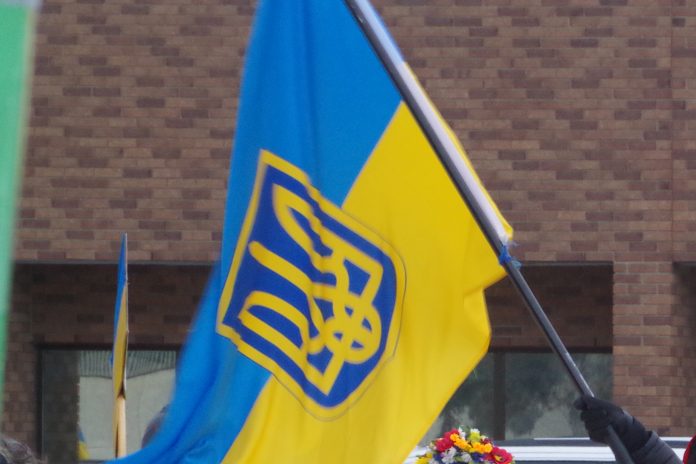For the first time in more than a century, Ukrainians in Prince Albert and across the world will not celebrate Christmas on Jan. 7.
Instead, 2023 marked the first year the Ukrainian diaspora celebrated Christmas on Dec. 25. The Ukrainian government passed legislation in July that made the date change official. The laws came after two of the country’s largest orthodox denominations switched from the Julian Calendar used by the Russian Orthodox Church, to the Gregorian calendar, where Christmas falls on the 25th.
“We will now be coming together and uniting and celebrating Christmas as everyone else does with the Gregorian calendar,” said Sonya Jahn, a local resident who has led the volunteer effort to resettle Ukrainian families in Prince Albert.
“It’s a little bit strange for the newcomers who have traditionally celebrated on the Julian calendar. There are still some traditions that will be continued in terms of Ukrainian culture.”
Scheduling conflicts prevented Jahn and her family from having Christmas on the 25th, so instead they’ll get together on Saturday, Dec. 30. On Christmas, Jahn and other longtime residents spent the day with new Ukrainian families. She said the date change didn’t feel strange for her at all.
“The cultural tradition around the holiday season is to get together with friends and family,” Jahn said. “I mean, (it’s) no different than what we do here in Canada, although it’s special. It brought back a lot of nostalgia for me from the time when I was a little girl.”
The Ukrainian government cited the desire for Ukrainian traditions and holidays unconnected to Russia when approving the date change. Ukraine is in the second winter of its war against Russia. The Russian army invaded the country on Feb. 4, 2022.
Jahn said she has no doubts the date change is permanent. She said many Ukrainian families in Prince Albert are still stunned by the Russian invasion.
“People who have fled and who have come here to Prince Albert are just still bewildered and shocked,” she said. “They had been living a very peaceful life, (and) all of a sudden their lives were turned upside down, their homes destroyed, their livelihoods destroyed, and basically (they’re) fleeing for their lives.”
Although the calendar has changed, it might take a while for the effects to settle in. The Ukrainian Orthodox Church has historic ties to Russia and says it is no longer aligned with the Russian Orthodox Church. However, the church still recognizes Jan. 7 as the official Christmas date.
Two other denominations, the Orthodox Church of Ukraine (OCU) and the Ukrainian Greek Catholic Church, held Christmas services on Dec. 25. However, many cultural groups still have celebrations planned for Malanka on Jan. 13, which marks the New Year instead of Jan. 1.
The Prince Albert Barveenok Ukrainian Dancers are one of several Saskatchewan-based Ukrainian cultural groups still performing on Malanka. They’ll be ringing in the New Year at Elks Ridge Resort on Jan. 13 instead of Jan. 1.
Club president Kayleigh Skomorowski said many of these Malanka performances were likely booked before the calendar change became official. However, Skomorowski said the calendar change may not impact Saskatchewan for a few years.
“There are still some people, particularly those of us outside of Ukraine in the diaspora, who are still kind of reluctant to let go of that whole identity piece of celebrating Ukrainian Christmas and the Ukrainian New Year on January 7 and January 13,” she explained. “Not everybody’s necessarily quite, I would say, informed or understanding of why the Ukrainian Church has made their choice to pull away from that.
“I think that we’ll probably still see some families continuing to celebrate on those traditional days in the Julian Calendar just based on how they identify as a Ukrainian Canadian.”
For dance groups like Barveenok, who are often booked to perform on Malanka, that could mean multiple performance dates next year. Skomorowski expects a “patchwork situation” where different communities celebrate Malanka on different dates.
“For the ones who aren’t necessarily connected to the church anymore, I think that idea of Ukrainian Christmas and Ukrainian New Year’s happening when they are is just a way for people to kind of set themselves apart from mainstream culture, not necessarily because the church was recognizing those days at those times,” she said.


